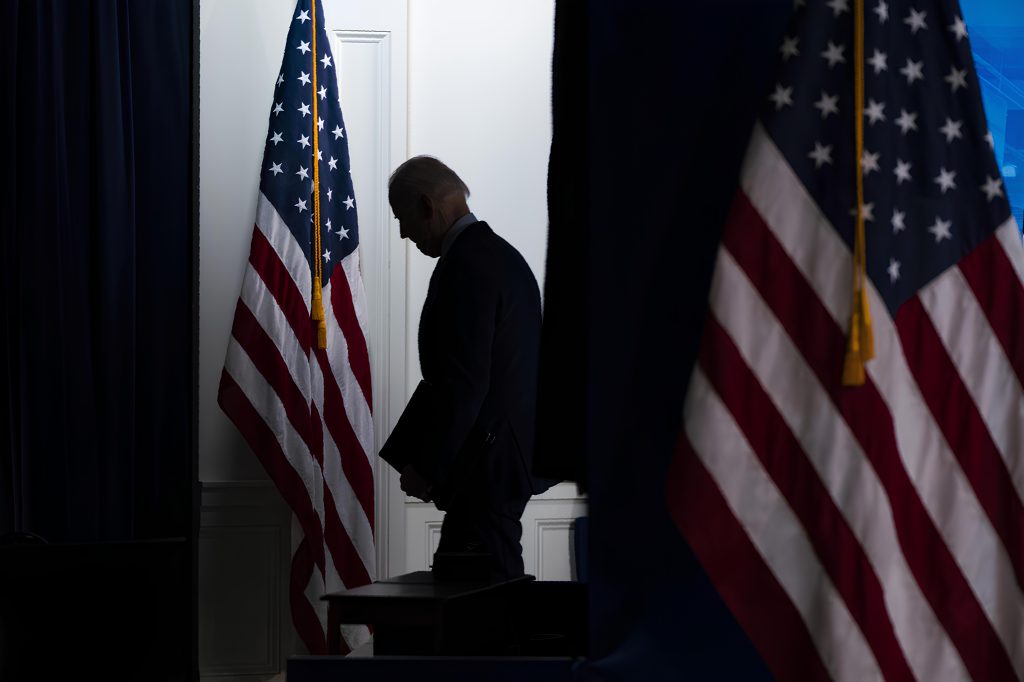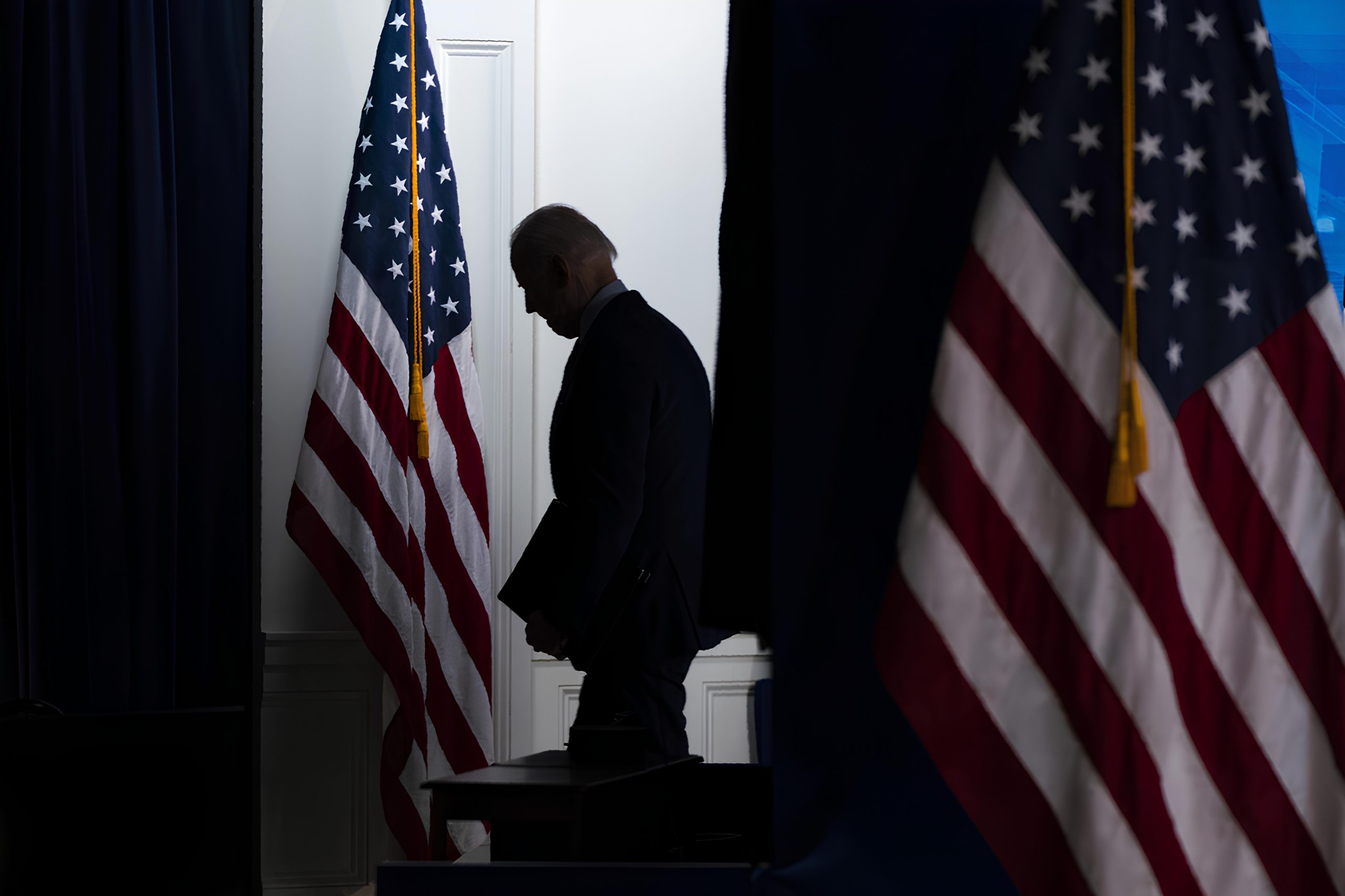








Changing Republican views on immigration and Trump’s influence create uncertainty for Ukraine’s aid, reflecting challenges in securing crucial international support.


Welcome to USA Brief, where we take a look at US international support for Ukraine. We examine the complexities surrounding aid to Ukraine amid evolving Republican attitudes and controversial border security demands. The changing political landscape and Trump’s influence shed light on the complexity of decision-making in the United States, creating obstacles to sustaining bipartisan support for vital international aid.
Europeans who are familiar with parliamentary government regularly are confounded by the strange operations of the U.S. government. “How can Ukraine funding be in jeopardy? Didn’t President Biden support it?” Indeed, he did [support a very large Ukraine aid package]. And indeed it is [in trouble].
America’s two legislative chambers – the House of Representatives and the Senate – are completely independent from the Presidency , and from each other. The president and vice president run as a two person team and legislative candidates run entirely on their own. It’s entirely possible for a president of one party to face two Congressional bodies from the other party. And at present, the House of Representatives is controlled by the Republican party – and the most extreme, Trumpist elements have substantial control over what the House does.
There was a time when different party control of Congress didn’t matter; politicians of both parties would work with the president and in the case of foreign policy, in particular, both parties recognized the importance of bipartisan support for the country’s foreign policy. That’s not true any longer.
Washington, DC, has been tied up since before the holiday season with two major pieces of legislation. The President, the Senate, and House Democrats have largely been able to develop compromises, but agreement has been confounded by extremist House Republicans. First, there is a large financial package intended to fund all the things the federal government does: disaster relief, build highways, run the national parks, pay salaries of soldiers and federal workers, buy weapons, cancer research, Moon mission, etc., that has been working its way through Congress. There’s a lot of pressure to get a deal done: the government has been working on short-term extensions for four months now, and the current extension is about to run out.
An agreement has been reached and it looks like the arrival of a Friday morning snowstorm might have been enough to get agreement. Everyone wanted to get out of town before the storm, continuing to fight would have meant getting stuck here, so Congress is voting on legislation to extend spending authority another two months. Which means 1) the government doesn’t shut down this weekend, 2) We’ll keep fighting about spending, and 3) Members of Congress get to go home this weekend.
Separately, another proposal has been made for special additional funding: aid to Ukraine, Taiwan, and Israel, and additional funds for “border security.” These are a package – you can’t approve any until all are approved. There was a time when such a bill would have moved through Congress easily and quickly, but now is not that time. The Republican party has decided to make a major issue of “border security” and have said no aid bill will pass until their border security demands are met.
As recently as 20 years ago, this holdup would have been impossible. There would have been a broad consensus to support Ukraine and immigrants were generally viewed with favor, though most agreed controls were needed to regulate how many came. But today’s Republican party – following Donald Trump’s lead – is increasingly admiring towards strongmen like Vladimir Putin. And Trump holds a grudge, in particular, against Ukraine because they refused his demand to dig up dirt on Joe Biden when Trump made that demand.
But the border is even more important. In the past 10 years, the Republican attitude towards immigrants has changed profoundly. The flood of refugees from failed states in Latin America like Venezuela and El Salvador are now portrayed, not as people seeking freedom and opportunity, but as criminals, drug smugglers, child traffickers, and terrorists. Republicans complain about a so called “open borders”policy and candidate Trump complains “they’re sending rapists and murderers” and, in an echo of Hitler, “they’re poisoning the blood of our country.” This combination – lack of agreement that Ukraine aid is a high priority and desire to make demagogic demands about immigration crackdowns – combines to put Ukraine funding in great jeopardy. The Senate and the President seem to have agreed on a plan, but it’s far from certain that the House will pass it.
Some may protest that “but Ukraine is defending democracy” or “if Putin wins, he won’t stop with Ukraine,” or “but Ukraine will fall to the Russians without US support.”
Written By: GABRIEL RAMIREZ
Written By: DILARA SAHIN
Written By: DILRUBA YILMAZ
Written By: NILAY CELIK
Written By: ELDANIZ GUSSEINOV
Written By: JOSEF SCHOEFL
Written By: SELCAN BEDIRHANOGLU
Written By: FATIH CEYLAN
FA’s flagship evening newsletter guilding you through the most important world streis ofthe day. Delivered weekdays.
